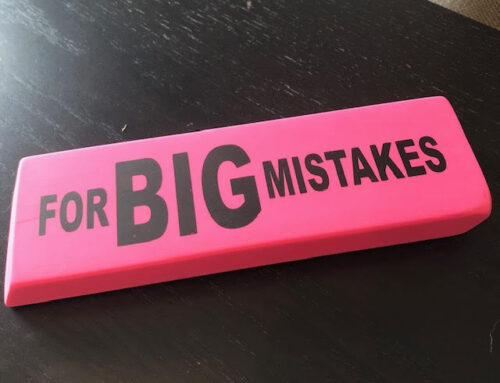I was recently listening to a panel presentation where Reggie Humphrey, head of General Motors Supplier Diversity, was captivating everyone as he described the many positive effects of mentoring. Another panelist, an entrepreneur, raved about the benefits this mentoring afforded her, including a scholarship for a prestigious Tuck program. I’m convinced everyone listening was thinking the same thing as I was: “I want Reggie to be my mentor”.
Formal mentoring programs are becoming more prolific in the corporate world. Organizations are aligning their wiser, more experienced employees with their new hires. Theoretically, this is a strategic way to accelerate skill development. But as we all know, theory doesn’t always translate into results. Some mentors are frankly better than others.
As a result, certain lucky employees are blessed with having won the equivalent of the mentor lottery. Their mentor is a unique blend of a champion, challenger and collaborator.
How do you know if you are one of the lucky few with one of those infamous mentors? It’s relatively straightforward to determine – ideally, your mentor does most (better yet, all) of these seven things:
- They learn
Great mentors invest in learning about their mentee. They begin by understanding your goals, so they can tailor their support. They don’t project their own career strategies on you, despite it being easier to deliver a less customized approach. Great mentors ask you questions first and offer advice later.
- They set clear goals
Great mentors don’t simply engage in informal, periodic discussions. They challenge you to commit to clear goals with a specific timeline. Then they ensure you have a regular meeting schedule in place to track progress. This accountability is what separates great mentors from other cheerleaders.
- They teach
Great mentors support skill development. They share their experiences and feedback. They also alert you to potential blind spots that may be holding you back. Sometimes this means your mentor is delivering the tough message that other influencers chose to ignore. Great mentors are not always your best friend, but they do make you better.
- They open doors
Great mentors alert you to opportunities. They may have greater awareness than you and they almost certainly have better access to these chances. They act as the classic “connector” highlighted in Malcolm Gladwell’s book The Tipping Point. They connect you to the right people and opportunities to make bigger leaps in your career.
- They champion
Like many driven people, with your sights set on long-term goals, you may neglect to revel in how far you’ve come. Thankfully, great mentors celebrate your successes. And this does more than simply generate warm fuzzy feelings. This fuels your motivation for the long-haul. When you hit the inevitable bumps in the road, this extra fuel gets you through.
- They are a trusted advisor
A mentor is an experienced and trusted advisor. This is the person with whom you can share the good, the bad and the ugly. Unlike your supervisor, you can usually speak more freely with your mentor about issues you’re not comfortable raising with your manager. Great mentors offer an objective, non-judgmental perspective, which many of us often need.
- They expect great mentees
Great mentors don’t tolerate passengers. They expect you to do your homework. And they expect you to help prompt many of the above activities. Mentoring, much like everything else in life, gives you more results the more you put into it. At the end of the day, you can only have a great mentor if you are prepared to be a great mentee.
So, what happened with Reggie? In a bold move, I asked him to be my mentor – even though I was just meeting him for the first time. Rightfully so, he didn’t give me a straight yes. I had to convince him why I would be a good mentee. But convince him I did, and now I feel like I’ve won the mentor lottery. I just need to make sure I do my part as a mentee.
What is your experience with mentoring? If you feel like you’ve won the mentor lottery, I’d love to hear why. Please share in the comments below. (Though maybe it’s best not to share here if you think otherwise!)








Leave A Comment